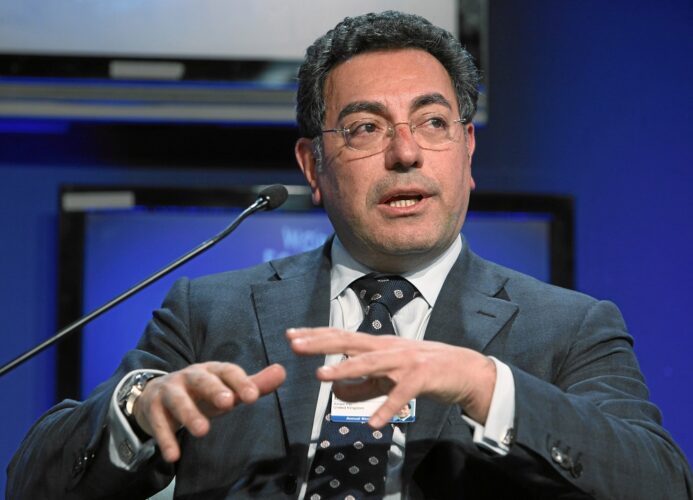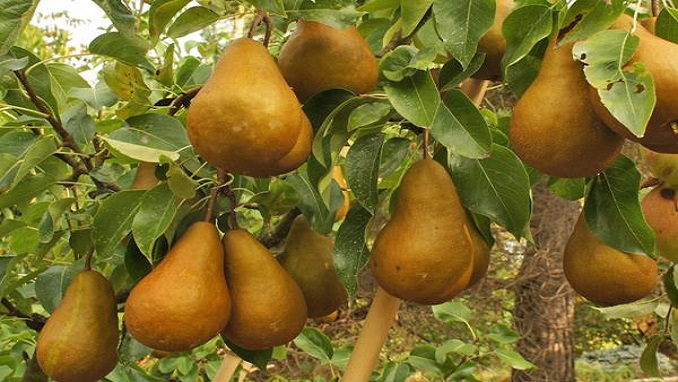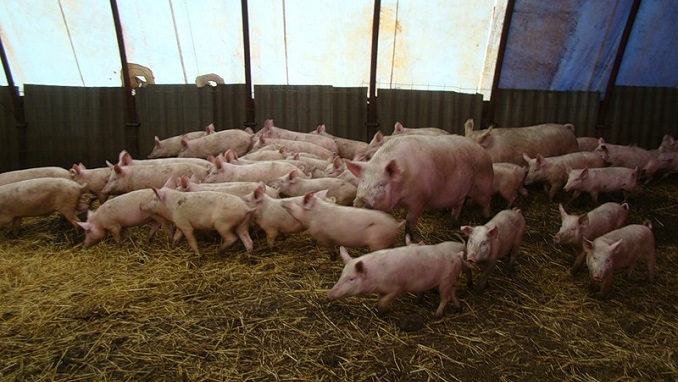The war in Ukraine has had a tremendous impact on everyone and their finances through inflation and the energy crisis. Last spring, the start of the war meant a threat to the jobs of hundreds of employees of the fertilizer manufacturer EuroChem at the company’s site in Antwerp.
EuroChem is a company of Russian origin but is formally part of a Swiss group. The company’s ultimate beneficiary was Russian industrialist Andrei Melnichenko, but due to the Russian invasion of Ukraine, he landed on the EU sanctions list, so the branch in Antwerp was unable to resume production.
In order to get the Antwerp site up and running, Melnichenko pulled out as the beneficiary of EuroChem and was later replaced by his wife Aleksandra, who later ended up on the sanctions list, too.
Eventually, Belgian authorities gave the go-ahead for the Antwerp plant to be restarted thanks to a monitoring mechanism that stopped money from EuroChem from going to the Melnichenko family.
In an interview with Belgian publisher De Tijd, Samir Brikho, EuroChem’s executive chairman and de facto CEO, talks about the current situation of the company.
He makes it clear that EuroChem is exempt from the sanctions, but the obstacles are still there. Brikho goes on to say that EuroChem’s branch in Lithuania – Lifosa – has not yet been allowed to resume operations.
‘The Lithuanian government considers Lifosa sanctioned. Why? It employs 1,000 people, but not a single Russian is there, and there are no sanctions against the management or the group. We have proposed to the Lithuanian government the same model as in Belgium (the second auditor, ed.) to ensure compliance. Unfortunately, we have not yet reached a settlement.’
Brikho estimates that Antwerp is operating at roughly 90% of capacity, but things are not going as smoothly there either. The statutory auditor for the Antwerp location, Deloitte, has lately made it known that it wishes to sever ties with the business as soon as possible, according to the chairman of EuroChem.
‘Also the relations with the banks are still very fragile. If that goes in the wrong direction, it could lead to problems, because how am I going to pay the salaries, for example? With cash?’ Brikho says, adding that switching banks is also not an option.
‘Can you get me one? The banks don’t want to get involved. They don’t want to make mistakes and get involved with Russia. However, we can help with all the control mechanisms. Politics can reassure the banks. That is why we have asked the Belgian government – I am very positive about its vision and approach – to do so, but of course, it cannot exert pressure,’ he adds.
Brikho claims that primary (Lithuania) and secondary sanctions have resulted in a 25% reduction in EuroChem’s production volume, but the firm is still able to make ends meet. The fact that the cost of fertilizer has more than quadrupled since the invasion also helps. The firm is not currently being impacted by high energy prices for fertilizer even though production uses a lot of energy.
The EuroChem CEO explains that the sanctions have caused serious disruption to the production of fertilizer which as a result has serious implications for grain trade.
‘I am closely involved with the World Economic Forum (WEF). According to the WEF, 50 million people were starving before the war, what do you think the situation is now? Now the estimate comes out to 200 to 300 million. That is why UN Secretary-General Antonio Guterres called for not touching the food chain and the fertilizer industry. If we do, the problem won’t get under control. I am on the same line as the UN: allow a truly free circulation of fertilizers, that will reduce prices (some other big players are Russian as well, ed.),’ Brikho explains.
Approximately five percent of the world’s fertilizer market is held by EuroChem, a top five competitor. The group’s chairman claims that because of market uncertainties and the role that the economy is playing, even a reduction of 25% in output has an impact on market pricing.
‘I don’t want to be an additional factor causing even more stress in the system. But if one company produces less, there is not just one industry peer that can produce more. Raw materials can’t be found everywhere in the world. You also need a long-term supply of cheap gas, and that is not everywhere,’ according to Brikho.
Before he became CEO of EuroChem in 2018, Brikho’s resume involved no Russian companies, nor any other Russian connections. He was asked to join the company by former chairman Alexander Landia, but Brikho was very cautious before he took up Landia on his offer.
With his numerous contacts in the industry and the governments, Brikho made sure the ‘company is kosher,’ with no hidden agenda. Brikho wanted to make sure the company’s relationships wouldn’t damage his reputation.
His reason for staying even after the invasion is that he feels he is morally responsible for the supply of fertilizer.
‘As a person, I am very clear about my position, but at the same time, I have the great moral responsibility that there will be no interruption in the supply of fertilizer. I have a charitable organization with which I can help maybe 50 children, but here I am talking about at least 200 million people at risk of famine. I would feel bad about abandoning the ship. Besides, everyone I discuss this with, says I should stay on board.’
When asked about his opinion on the war he decidedly said he was against it, and against any other war.
‘I was born in the Lebanese capital Beirut. I was a teenager when the civil war broke out there and lived through the first two years of it. Then I emigrated to Sweden with my parents. I am against war because I know what it means, and I am also against this war. War brings misery, there are no winners, only losers.’



